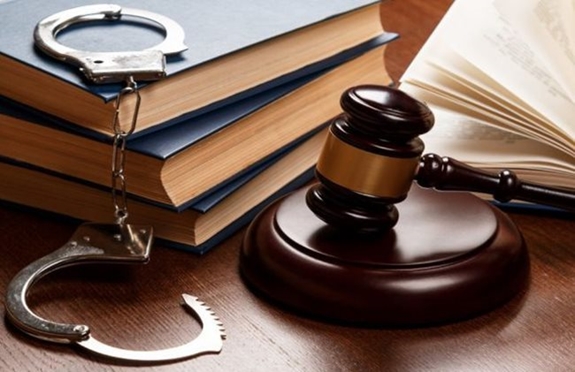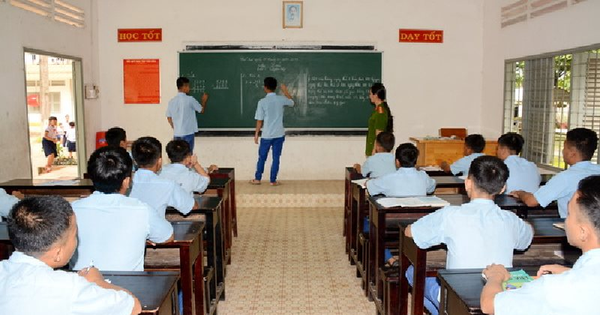Basis for exemption from criminal responsibility in Vietnam
What are the regulations on basis for exemption from criminal responsibility in Vietnam? - Thanh Long (Ninh Thuan)

Basis for exemption from criminal responsibility in Vietnam (Internet image)
Regarding this issue, LawNet would like to answer as follows:
1. Basis for exemption from criminal responsibility in Vietnam
According to Article 29 of the Penal Code 2015 (amended in 2017), the basis for exemption from criminal responsibility in Vietnam are stipulated as follows:
- A criminal offender shall be exempt from criminal responsibility on one of the following bases:
= A policy or law is changed during the process of investigation, prosecution or trial and accordingly, the offender's act is no longer dangerous to society;
= A general amnesty is granted.
- A criminal offender might be exempt from criminal responsibility on one of the following bases:
= The situation is changed during the process of investigation, prosecution or trial and accordingly, the offender is no longer dangerous to society;
= The offender has a fatal disease during the process of investigation, prosecution or trial and no longer poses a threat to society;
= Before the crime is discovered, the offender confesses his/her crime, contributes to the crime discovery and investigation; minimizes the damage inflicted by his/her crime, have made reparation or special contributions that are recognized by the State and society.
- The person who involuntarily commits a less serious crime or a serious crime and causes damage to life, health, honor or property of others will be exempt from criminal responsibility if the aggrieved person or his/he representative voluntarily seeks reconciliation and requests exemption from criminal responsibility
2. Cases of exemption from criminal responsibility in Vietnam
Pursuant to Chapter IV of the Penal Code 2015, cases that exclude criminal liability include:
(1) Unexpected events
The person who commits an act that results in harmful consequences is exempt from criminal responsibility if such consequences cannot be foreseen or have to be foreseen.
(2) Lack of criminal capacity
A person who commits an act that is dangerous to society is suffering from a mental disease or another disease that causes him/her to lose his/her awareness or control of his/her behaviors is exempt from criminal responsibility.
(3) Justifiable force
- Justifiable force in self-defense means the a person's use of force which is reasonably necessary to defend against another person's infringement upon his/her legitimate rights or interests of himself/herself, other people, the State, organizations.
The use of justifiable force does not constitute a criminal offence.
- Unjustified force in self-defense means the use of force which is more than reasonably necessary and not appropriate for the nature and danger to society posed by the infringement.
The person who uses unjustified force in self-defense shall take criminal responsibility as prescribed by this document.
(3) Urgent circumstances
- An urgent circumstance is a circumstance in which there is no other way but an amount of damage has to be inflicted in order to prevent a greater damage to lawful rights and interests of oneself, another person, the State or an organization.
The act of inflicting damage in an urgent circumstance does not constitute a criminal offense.
- If the damage inflicted is reasonably unnecessary in the urgent circumstance, the person who inflicts such damage shall bear criminal responsibility.
(4) Infliction of bodily harm while capturing criminals
- If violence and infliction of bodily harm to a criminal is the only way to capture him/her, the use of violence in this case does not constitute a criminal offence.
- If the bodily harm inflicted by the use of violence is obviously more than necessary, the person who inflicts such damage shall bear criminal responsibility.
(5) Risks from researches, experiments, application of technological advances
The infliction of damage during the conduction of a research, experiment or application of technological advances does not constitute a criminal offence provided the procedures and regulations are complied with and all preventive measures are taken.
The person who fails to comply with the procedures, regulations or take all preventive measures and causes damage shall bear criminal responsibility.
(6) Following orders of commanders or superiors
A person who inflicts damage while following an order of his/her commander or superior in the army to perform national defense and security duties is exempt from criminal responsibility if he/she complies with procedures for reporting to the order giver but the order giver still request that the order be followed. In this case, the order giver shall bear criminal responsibility.
This provision does not apply to the cases specified in Clause 2 Article 421, Clause 2 Article 422 and Clause 2 Article 423 of the Penal Code 2015.
Ho Quoc Tuan
- Key word:
- criminal responsibility
- in Vietnam
- Cases of land rent exemption and reduction under the latest regulations in Vietnam
- Economic infrastructure and social infrastructure system in Thu Duc City, Ho Chi Minh City
- Regulations on ordination with foreign elements in religious organizations in Vietnam
- Increase land compensation prices in Vietnam from January 1, 2026
- Determination of land compensation levels for damage during land requisition process in Vietnam
- Who is permitted to purchase social housing according to latest regulations in Vietnam?
-

- Principles for supervising and educating violators ...
- 13:00, 27/09/2024
-

- Emergency response and search and rescue organizations ...
- 10:29, 11/09/2024
-

- Handling of the acceptance results of ministerial ...
- 09:30, 11/09/2024
-

- Guidance on unexploded ordnance investigation ...
- 18:30, 09/09/2024
-

- Sources of the National database on construction ...
- 16:37, 09/09/2024
-

- Notable new policies of Vietnam effective as of ...
- 16:26, 11/04/2025
-
.Medium.png)
- Notable documents of Vietnam in the previous week ...
- 16:21, 11/04/2025
-
.Medium.png)
- Notable documents of Vietnam in the previous week ...
- 16:11, 02/04/2025
-
.Medium.png)
- Notable new policies of Vietnam to be effective ...
- 16:04, 02/04/2025
-
.Medium.png)
- Notable new policies of Vietnam effective from ...
- 14:51, 21/03/2025
 Article table of contents
Article table of contents
